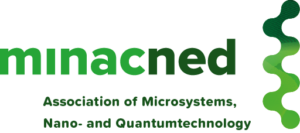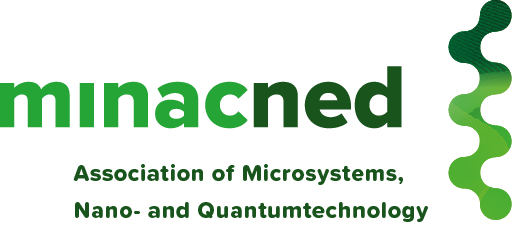The “Horizon Europe” programme, which was launched this Tuesday, 2 February, has a budget of around €95 billion for research and innovation all over Europe from 2021-2027.
“Horizon Europe” is the ninth European framework programme for research and innovation, following on from the “Horizon 2020” programme (2014-2020), and will be the biggest programme ever undertaken in Europe. Its launch by the Portuguese Presidency of the Council of the EU is being promoted along with a mobilisation process for all of Europe, in conjunction with structural funds and, particularly, with the national recovery and resilience plans of each member state in preparation for the “Next Generation EU, 2021-26” programme.
The aim is for the European Union to lead the twin green and digital transition in association with a resilient recovery through a renewed European Research Area (ERA) and through an effective increase in public and private investment in R&D, particularly in the context of the recent reaffirmation by the European Commission of the goal of 3% of public and private investment in R&D in terms of gross domestic product by 2030.
“Horizon Europe” is thus based on three terms of reference:
-
1. Scientific excellence: development of quality skills and expertise in order to reinforce the scientific leadership of the European Union, with the involvement of all the regions and all European citizens; creation of new markets, working conditions and skills, particularly in the sectors most severely affected by the negative impacts of the pandemic.
-
2. Global challenges and European industrial competitiveness: natural resources, mobility, food, digital media and energy are just some of the areas that can count on additional support for research into the challenges they face, as well as for the associated industrial technology; it is in this area that partnerships are expected to be created with the aim of achieving carbon neutrality by 2050.
-
3. Innovative and inclusive Europe: there will be stimuli for the creation of professional careers linked to research, both in the public and private sectors, making them more inclusive, particularly for women and minorities; it is also intended to foster research and recruitment ecosystems in order to train and retain talents in Europe. Other goals include cooperation between national funding agencies and the European Commission, while also contributing to promoting the creation of “European university” networks.
The “Horizon Europe” programme includes four implementation pillars:
Pillar 1: “Science of Excellence”, supporting scientific excellence in terms of human resources and infrastructure, particularly through the European Research Council (ERC), the Marie Skłodowska-Curie Actions (MSCA), as well as research infrastructures (ESFRI).
Pillar 2: “Global Challenges and European Industrial Competitiveness”, which will support research and development activities in six areas (or clusters): Health; Culture, Creativity and Inclusive Society; Civil Security for Society; Digital, Industry and Space; Climate, Energy and Mobility; Food, Bioeconomy, Natural Resources, Agriculture and Environment. Under the scope of these six areas, Pillar 2 also includes:
-
Research Missions, in five áreas:
-
-
Adaptation to climate change including societal transformation;
-
Climate-neutral and smart cities;
-
-
Healthy oceans, seas, coastal and inland waters.
-
Institutional Partnerships: aimed at mobilising public and private sectors in areas such as energy, transport, biodiversity, health, food and the circular economy.
Pillar 3: “Innovative Europe”, supporting the creation of new markets and SMEs, including new supports to be granted under the scope of the new European Innovation Council (EIC), the support for European Innovation Ecosystems (EIE) and for the European Institute of Innovation and Technology (EIT). The EIT legislation was recently revised, on 29 January, already during the Portuguese Presidency, in order to encompass more inclusive action open to all of Europe and two new areas of intervention, through Knowledge and Innovative Communities (KIC) (namely, oceans and creative industries, in addition to the initial areas of health, digital, energy, materials and climate).
Pillar 4: “Extending participation in and reinforcement of the European Research Area”, including support for the extension of participation in and the reinforcement of the European Research Area, through a set of different funding instruments aimed at establishing networks for human resources and at institutional level.
Implementation of “Horizon Europe”
The implementation of the “Horizon Europe” programme will be coordinated by the European Commission’s Directorate-General for Research (DG RTD), following on from the previous European research and innovation framework programmes. Further details at Horizon Europe | European Commission.
In the case of Portugal, the coordination and dissemination of the strategy for reinforcing national participation in the “Horizon Europe, 2021-27” programme is carried out through PERIN – “Portugal in Europe Research and Innovation Network”, which includes the main funding agencies and promoters, namely FCT, ANI, AICIB, PT Space, the ERASMUS Agency and DGES, working closely with the promotion offices for European programmes in academic and research institutes, as well as in companies, business associations and company incubation centres and interface institutions.
Portugal’s aim is to double national participation in the “Horizon Europe, 2021-27” programme compared to participation in the Horizon 2020 (2014-2020) programme and attract around two billion euros for research and innovation activities on a competitive basis by the public and private sectors, including SMEs (in comparison to the approximately 1.1 billion attracted between 2014 and 2020 through supports granted by the H2020 programme, also in competitive terms).
Source: Europa.nu

